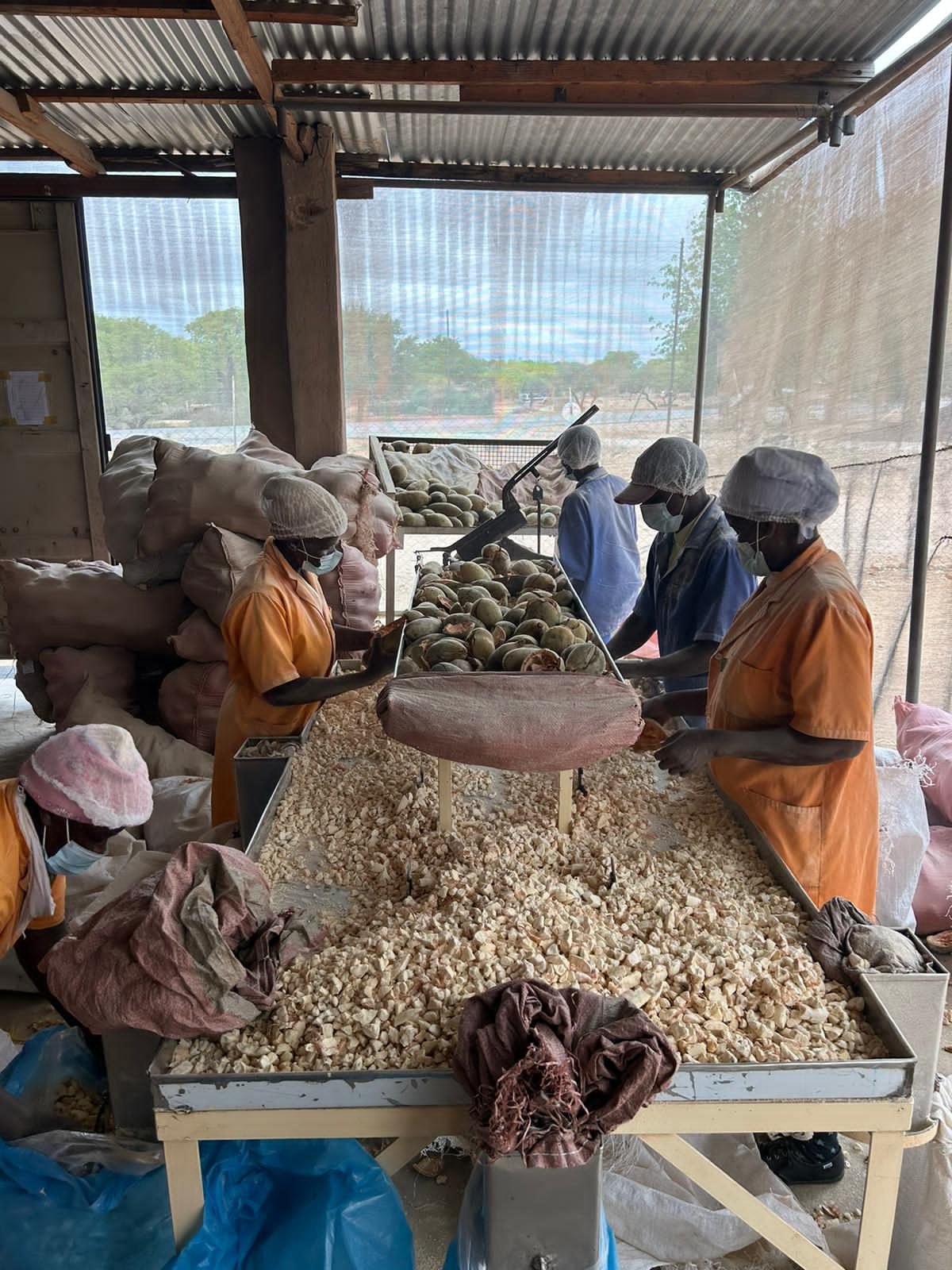|
Getting your Trinity Audio player ready...
|
Writes Tafadzwa Muranganwa
A visit to a son-in-law in Birchenough a few years ago is all that led Aaron Chenjerai Mazorere of Chiadzwa to start the collection of the baobab fruit. He prides himself on initiating the project in his home area which has attracted a lot of interest from fellow villagers.
“Some years back I visited my son-in-law in Birchenough where I found out about the baobab collection project by B’Ayoba, a leading producer of baobab products, and in no time I contacted the manager, Douglas, expressing my interest in being part of this initiative. I then introduced this to my fellow villagers and the response has been overwhelming,” Mazorere narrates.
Baobab, the ‘new diamond’
Interestingly, Chiadzwa is known for its vast deposits of diamonds but Mazorere claims that there is no longer that urge by the local community to risk their lives in the illegal mining of the precious metal.
“Many of us have realised that there is much value in the baobab fruit, unlike diamonds which can be depleted in the long run. With the baobab, you know that generations after generations will be able to utilise this natural resource,” quips Mazorere.
Mazorere is among a number of baobab collectors that are working with B’Ayoba in the dry parts of Manicaland namely Buhera, Chimanimani, and Chipinge.
Livelihoods change
A number of farmers who were undergoing certification training by Organic Africa Academy (OFA) recently, expressed their delight at how the baobab collection has incredibly changed their lives.
“From the proceeds of the baobab collection I managed to buy myself irrigation equipment and many household appliances,” Machia Mabika from Chibuwe says.
Farai Gananga from Zitiro village in Chimanimani managed to construct his house from the money he got from the collection of baobab fruits.
“I am very grateful that since I started collecting baobab I have been able to complete the construction of my house,” he revealed.
A 67-year-old Jonathan Muchini who hails from the Chimutsa area in Buhera has been able to fund school fees for his Form 2 son.
“I had challenges in securing fees for my son before I got into baobab collection but thanks to this initiative he is now in Form 2 at Bhegedhe Secondary School and I don’t have school fees arrears. It has been a real game changer,” alludes Muchini.
Factories create employment
The B’Ayoba factories in Birchenough Bridge and Nyanyadzi have created employment for the local communities there. According to B’Ayoba Buhera, Chimanimani, and Chipinge area manager Mr Douglas Philimon, over 40 locals are employed by the firm.
“We have around 43 workers who are working at the two factories and most of them are from the local communities,” Mr Douglas Philimon said.
Sustainable wild collection key
While much interest has been garnered in baobab collection in the Chimanimani, Chipinge, and Buhera districts because of the B’Ayoba project, there is the need for collectors to be equipped with knowledge on sustainable wild collection, a training consultant with OFA states.
“As collectors, there is the inherent need to ensure we do the collection with the future in mind. We are expected to only collect fallen baobab fruits and not harvest from the tree,” Tatenda Manyadza, Organic Farming Academy, training consultant told the collectors.
Human-Wildlife conflict tamed
The country has been battling worsening human-wildlife conflict over the years and this can be minimised if wild collectors do it sustainably.
“Let’s bear in mind,the wild fruits we collect are also food for wild animals. If we don’t collect sustainably, we risk having these wild animals straying into our fields and homes scrounging for food,” added Manyadza.
Organic markets boon
According to Organic Farming Academy training consultant Tatenda Manyadza, there is a huge market for organic products like the baobab fruit but for certification to happen there is the need for collectors to follow a number of processes to ensure the high value of the products.
“It is key for wild collectors to adhere to what is required of you to get the organic producer certification. This includes sustainable collection which we were humming about. There is also the need for proper storage of the baobab fruit in your case.It is important again to ensure transportation is organised to avoid contamination of the product,” asserts Manyadza.
For certification, B’Ayoba is working with Fairwild Foundation.
The baobab tree, Adansonia digitata, is famed for its ability to live up to 3,000 years.
According to an article by Lindsey Jean Schueman on One Earth, the bark and fruit offer over 300 life-ark-sustaining uses. It is the root of many indigenous remedies, traditions, and folklore hence its literal nickname ‘The Tree of Life’.
There are fears that now that most communities are deriving economic benefits from baobab collection this may lead to destructive collection hence the stepping in of organisations like Organic Farming Academy to ensure that there is sustainable wild collection.






